Richfield (435) 896-6497
Ephraim (435) 283-4076
July 2018
What Causes Plantar Hyperhidrosis?
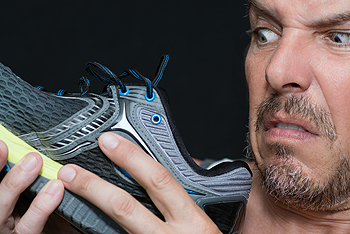 If you are experiencing excessive sweating of the feet, you may have an uncomfortable condition that is referred to as plantar hyperhidrosis. Research has shown that a cause for this ailment to occur may be a nervous system that is overactive. Other foot conditions may develop as a result of plantar hyperhidrosis, and these may include the formation of painful blisters and athlete’s foot, in addition to a foul odor coming from the feet. It may be hazardous to perform any type of martial arts, exercise, or dance routine, which may possibly cause wet spots to form on the mats, that are typically used. It may cause falling to occur easily, which may lead to serious injuries. Please schedule a consultation with a podiatrist if you are afflicted with plantar hyperhidrosis of the feet and would like additional information.
If you are experiencing excessive sweating of the feet, you may have an uncomfortable condition that is referred to as plantar hyperhidrosis. Research has shown that a cause for this ailment to occur may be a nervous system that is overactive. Other foot conditions may develop as a result of plantar hyperhidrosis, and these may include the formation of painful blisters and athlete’s foot, in addition to a foul odor coming from the feet. It may be hazardous to perform any type of martial arts, exercise, or dance routine, which may possibly cause wet spots to form on the mats, that are typically used. It may cause falling to occur easily, which may lead to serious injuries. Please schedule a consultation with a podiatrist if you are afflicted with plantar hyperhidrosis of the feet and would like additional information.
If you are suffering from hyperhidrosis contact Dr. Blake Zobell of Utah. Our doctor can provide the care you need to attend to all of your foot and ankle needs.
Hyperhidrosis of the Feet
Hyperhidrosis is a rare disorder that can cause people to have excessive sweating of their feet. This can usually occur all on its own without rigorous activity involved. People who suffer from hyperhidrosis may also experience sweaty palms.
Although it is said that sweating is a healthy process meant to cool down the body temperature and to maintain a proper internal temperature, hyperhidrosis may prove to be a huge hindrance on a person’s everyday life.
Plantar hyperhidrosis is considered to be the main form of hyperhidrosis. Secondary hyperhidrosis can refer to sweating that occurs in areas other than the feet or hands and armpits. Often this may be a sign of it being related to another medical condition such as menopause, hyperthyroidism and even Parkinson’s disease.
In order to alleviate this condition, it is important to see your doctor so that they may prescribe the necessary medications so that you can begin to live a normal life again. If this is left untreated, it is said that it will persist throughout an individual’s life.
A last resort approach would be surgery, but it is best to speak with your doctor to find out what may be the best treatment for you.
If you have any questions please feel free to contact one of our offices located in Richfield and Ephraim, Utah . We offer the newest diagnostic and treatment technologies for all your foot and ankle needs.
Symptoms of Morton’s Neuroma
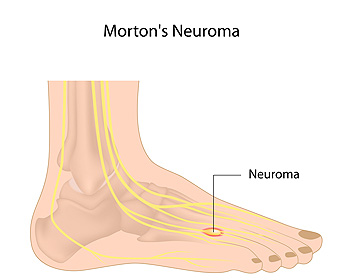 An inflamed nerve that is found below the big toe is often referred to as Morton’s neuroma. Symptoms that may be experienced can include a sharp pain on the bottom of the foot, which may often be accompanied by a burning sensation. Some patients may complain of a tingling sensation or numbness, which may spread to other toes. Walking may become difficult because of the pain that is increased as a result of normal pressure that is exerted on the ball of the foot. A possible cause for this condition to develop may often be associated with wearing shoes that fit too tightly around the middle of the foot, often forcing the patient to limp or to stop walking. Research has shown that relief may be found by gently massaging the foot, wearing shoes that fit properly, or having surgery performed in severe cases. It’s suggested to consult with a podiatrist for a proper diagnosis, in addition to learning about the best options for treatment.
An inflamed nerve that is found below the big toe is often referred to as Morton’s neuroma. Symptoms that may be experienced can include a sharp pain on the bottom of the foot, which may often be accompanied by a burning sensation. Some patients may complain of a tingling sensation or numbness, which may spread to other toes. Walking may become difficult because of the pain that is increased as a result of normal pressure that is exerted on the ball of the foot. A possible cause for this condition to develop may often be associated with wearing shoes that fit too tightly around the middle of the foot, often forcing the patient to limp or to stop walking. Research has shown that relief may be found by gently massaging the foot, wearing shoes that fit properly, or having surgery performed in severe cases. It’s suggested to consult with a podiatrist for a proper diagnosis, in addition to learning about the best options for treatment.
Morton’s neuroma is a very uncomfortable condition to live with. If you think you have Morton’s neuroma, contact Dr. Blake Zobell of Utah. Our doctor will attend to all of your foot care needs and answer any of your related questions.
Morton’s Neuroma
Morton's neuroma is a painful foot condition that commonly affects the areas between the second and third or third and fourth toe, although other areas of the foot are also susceptible. Morton’s neuroma is caused by an inflamed nerve in the foot that is being squeezed and aggravated by surrounding bones.
What Increases the Chances of Having Morton’s Neuroma?
- Ill-fitting high heels or shoes that add pressure to the toe or foot
- Jogging, running or any sport that involves constant impact to the foot
- Flat feet, bunions, and any other foot deformities
Morton’s neuroma is a very treatable condition. Orthotics and shoe inserts can often be used to alleviate the pain on the forefront of the feet. In more severe cases, corticosteroids can also be prescribed. In order to figure out the best treatment for your neuroma, it’s recommended to seek the care of a podiatrist who can diagnose your condition and provide different treatment options.
If you have any questions, please feel free to contact one of our offices located in Richfield and Ephraim, Utah . We offer the newest diagnostic and treatment technologies for all your foot care needs.
Are Flip Flops Good for my Feet?
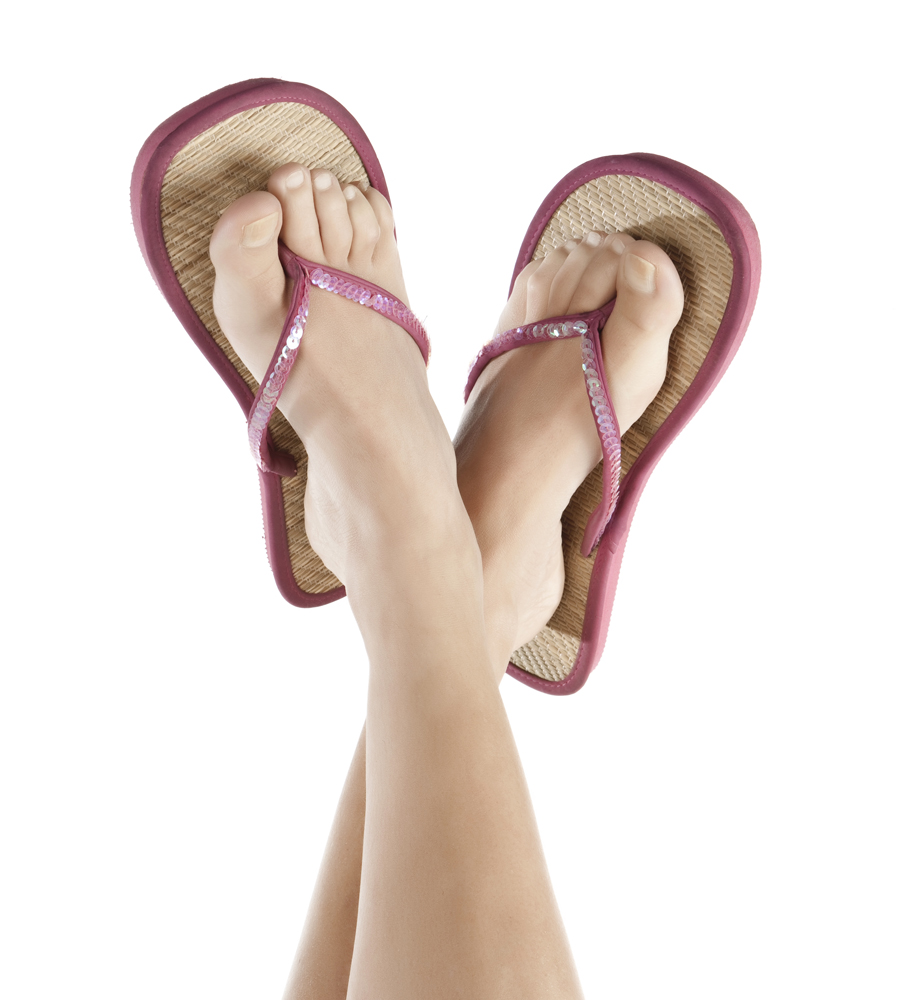 The idea of wearing flip flops can be enticing in the hot summer months. They can easily be worn for most daily activities and many are available in attractive colors. Despite their popularity, if you choose to wear flip flops you may be inviting the formation of painful foot conditions. The plantar fascia provides the necessary support the foot needs while connecting the toes to the heel bone. Wearing flip flops can cause this tissue to become inflamed, which may often result in discomfort and pain. Additionally, the Achilles tendon may be at risk for injury as a result of the lack of arch support that comes from wearing flip flops. If you are afflicted with diabetes, you may have nerve damage which can hinder the ability to feel any cuts that the material between the toes may incur. If you choose to wear this type of shoe, it’s best to do so in moderation, and this may possibly avoid potential foot problems that may be associated with wearing flip flops.
The idea of wearing flip flops can be enticing in the hot summer months. They can easily be worn for most daily activities and many are available in attractive colors. Despite their popularity, if you choose to wear flip flops you may be inviting the formation of painful foot conditions. The plantar fascia provides the necessary support the foot needs while connecting the toes to the heel bone. Wearing flip flops can cause this tissue to become inflamed, which may often result in discomfort and pain. Additionally, the Achilles tendon may be at risk for injury as a result of the lack of arch support that comes from wearing flip flops. If you are afflicted with diabetes, you may have nerve damage which can hinder the ability to feel any cuts that the material between the toes may incur. If you choose to wear this type of shoe, it’s best to do so in moderation, and this may possibly avoid potential foot problems that may be associated with wearing flip flops.
Flip-flops are not always the best choice of footwear. If you have any concerns about your feet or ankles, contact Dr. Blake Zobell from Utah. Our doctor will assist you with all of your foot and ankle needs.
Flip-Flops and Feet
When the weather starts warming up, people enjoy wearing flip-flops. Flip-flops are comfortable, stylish, and easy to slip on and off; they're perfect for any summer beach goer. However, these shoes can cause harm to the feet.
How Can Flip-Flops Affect Me Long-Term?
- Ankle problems
- Hip problems
- Lower back problems
- Pain in the balls of the feet
- Problems with foot arches
- Changes in the way you walk
Are There Injuries Associated with Flip-Flops?
Yes. Since flip-flops are relatively weak and do not provide the same amount of support as sneakers, people who wear flip-flops regularly are more susceptible to injuries. On top of that, the open nature of the shoe makes your feet more prone to other problems, such as cuts and even infections. Common injuries and ailments include:
- Sprained ankles
- Blisters
- Infections
- Cuts and Scrapes
I like Wearing Flip-Flops. Are There Safe Alternatives?
When buying flip-flops, try to find ones that have sturdy soles and that are made of high-quality materials that will support for your feet. These flip-flops will cost more but will also last longer as a result.
If you have any questions please feel free to contact one of our offices located in Richfield and Ephraim, Utah . We offer the newest diagnostic and treatment technologies for all your foot and ankle needs.
The Importance of Properly Caring for Diabetic Feet
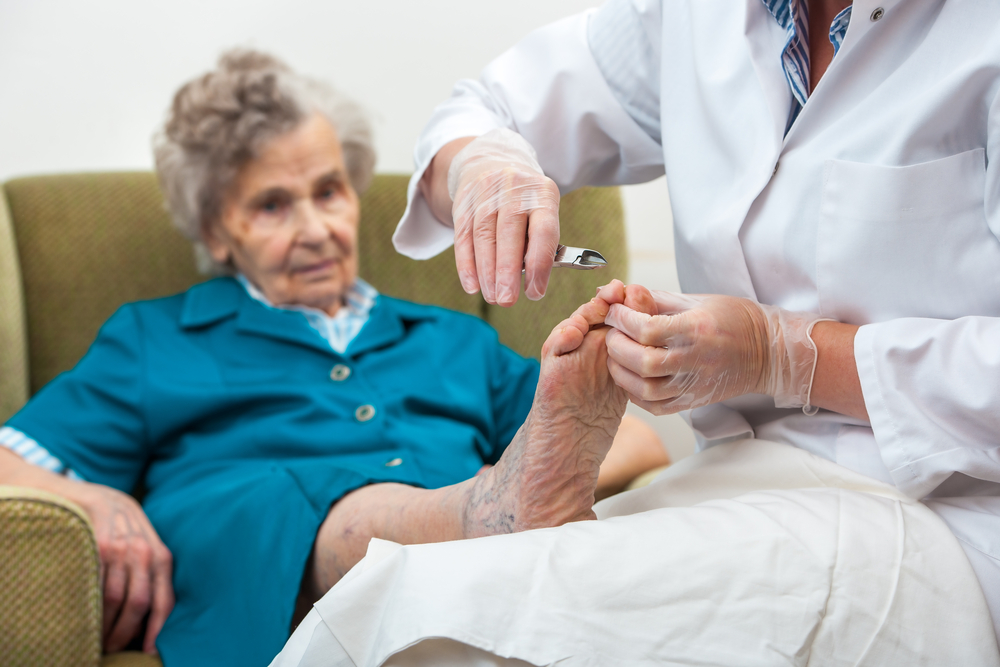 It’s important to properly care for the feet, especially for diabetic patients. Minor cuts and scrapes may be slow to heal, which is often due to the elevated insulin levels. These high levels may cause the nerves to become damaged, which may in turn cause a lack of feeling in the feet. Research has shown there are ways to possibly prevent specific foot conditions from occurring. This may be accomplished by having regular foot exams, wearing shoes that are designed for various foot ailments that may be present, or by performing low-impact exercise. The nerve damage that may occur is referred to as neuropathy, and can be very painful. If you are diabetic, it is strongly suggested that you visit a podiatrist frequently while also being sure to do daily foot inspections at home.
It’s important to properly care for the feet, especially for diabetic patients. Minor cuts and scrapes may be slow to heal, which is often due to the elevated insulin levels. These high levels may cause the nerves to become damaged, which may in turn cause a lack of feeling in the feet. Research has shown there are ways to possibly prevent specific foot conditions from occurring. This may be accomplished by having regular foot exams, wearing shoes that are designed for various foot ailments that may be present, or by performing low-impact exercise. The nerve damage that may occur is referred to as neuropathy, and can be very painful. If you are diabetic, it is strongly suggested that you visit a podiatrist frequently while also being sure to do daily foot inspections at home.
Diabetic foot care is important in preventing foot ailments such as ulcers. If you are suffering from diabetes or have any other concerns about your feet, contact Dr. Blake Zobell from Utah. Our doctor can provide the care you need to keep you pain-free and on your feet.
Diabetic Foot Care
Diabetes affects millions of people every year. The condition can damage blood vessels in many parts of the body, especially the feet. Because of this, taking care of your feet is essential if you have diabetes, and having a podiatrist help monitor your foot health is highly recommended.
The Importance of Caring for Your Feet
- Routinely inspect your feet for bruises or sores.
- Wear socks that fit your feet comfortably.
- Wear comfortable shoes that provide adequate support.
Patients with diabetes should have their doctor monitor their blood levels, as blood sugar levels play such a huge role in diabetic care. Monitoring these levels on a regular basis is highly advised.
It is always best to inform your healthcare professional of any concerns you may have regarding your feet, especially for diabetic patients. Early treatment and routine foot examinations are keys to maintaining proper health, especially because severe complications can arise if proper treatment is not applied.
If you have any questions please feel free to contact one of our offices located in Richfield and Ephraim, Utah . We offer the newest diagnostic and treatment technologies for all your foot and ankle needs.
Are Certain People Susceptible to Gout Attacks?
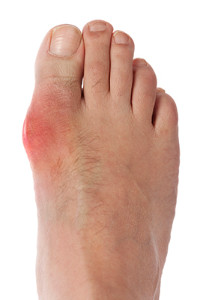 Gout is caused by an excess of uric acid that typically collects in the joints of the big toe. This commonly causes severe pain as a result of the inflammation around the big toe and surrounding areas. The majority of people who are afflicted with gout have a condition that is referred to as under-excretors, which is the inability to eliminate excess uric crystals from the urine. People who may be affected with this are diabetics and patients who may be obese or have heart disease. When certain types of foods are ingested, gout attacks may be more likely to occur. These may include shellfish, red meat or excessive alcohol. In severe and frequent gout attacks, small crystals may form in the kidneys, which may gradually increase in size to become kidney stones. If you have pain in your big toe and it appears to be red and tender, you may be experiencing a gout attack. It’s suggested to consult with a podiatrist as quickly as possible to discuss the best treatment options for you.
Gout is caused by an excess of uric acid that typically collects in the joints of the big toe. This commonly causes severe pain as a result of the inflammation around the big toe and surrounding areas. The majority of people who are afflicted with gout have a condition that is referred to as under-excretors, which is the inability to eliminate excess uric crystals from the urine. People who may be affected with this are diabetics and patients who may be obese or have heart disease. When certain types of foods are ingested, gout attacks may be more likely to occur. These may include shellfish, red meat or excessive alcohol. In severe and frequent gout attacks, small crystals may form in the kidneys, which may gradually increase in size to become kidney stones. If you have pain in your big toe and it appears to be red and tender, you may be experiencing a gout attack. It’s suggested to consult with a podiatrist as quickly as possible to discuss the best treatment options for you.
Gout is a foot condition that requires certain treatment and care. If you are seeking treatment, contact Dr. Blake Zobell from Utah. Our doctor will treat your foot and ankle needs.
What Is Gout?
Gout is a type of arthritis caused by a buildup of uric acid in the bloodstream. It often develops in the foot, especially the big toe area, although it can manifest in other parts of the body as well. Gout can make walking and standing very painful and is especially common in diabetics and the obese.
People typically get gout because of a poor diet. Genetic predisposition is also a factor. The children of parents who have had gout frequently have a chance of developing it themselves.
Gout can easily be identified by redness and inflammation of the big toe and the surrounding areas of the foot. Other symptoms include extreme fatigue, joint pain, and running high fevers. Sometimes corticosteroid drugs can be prescribed to treat gout, but the best way to combat this disease is to get more exercise and eat a better diet.
If you have any questions please feel free to contact one of our offices located in Richfield and Ephraim, Utah . We offer the newest diagnostic and treatment technologies for all your foot and ankle needs.








